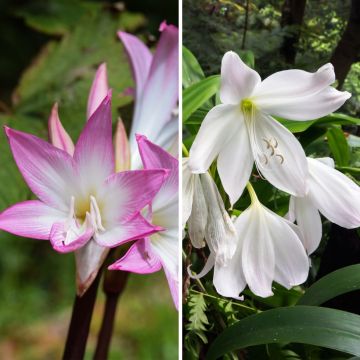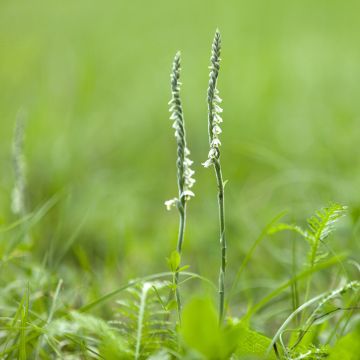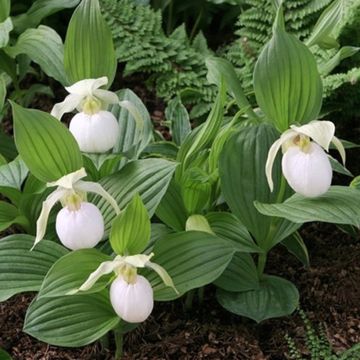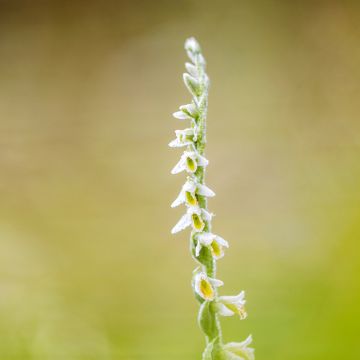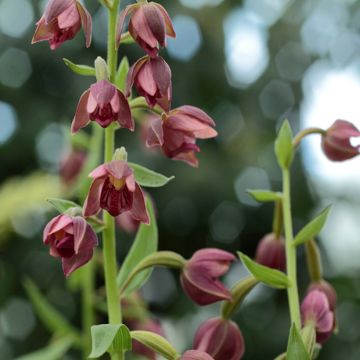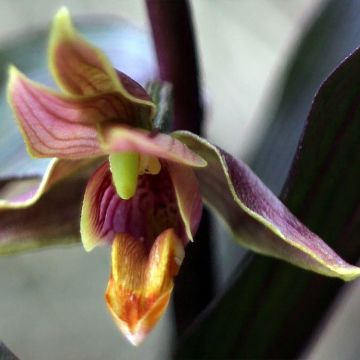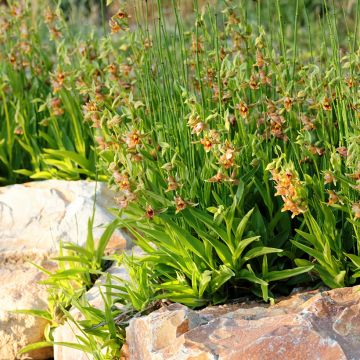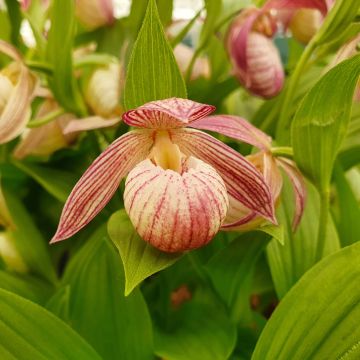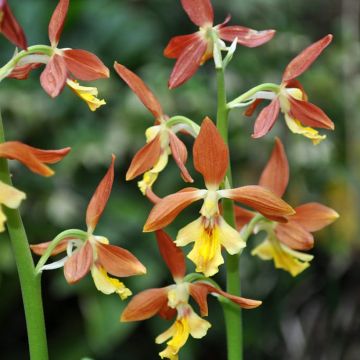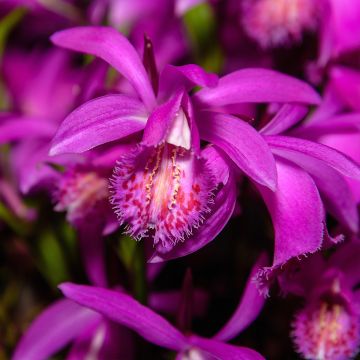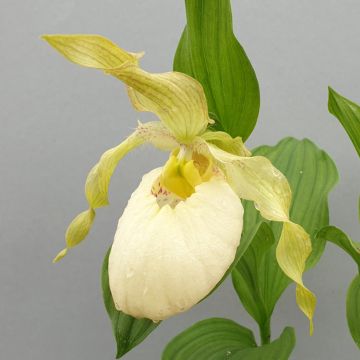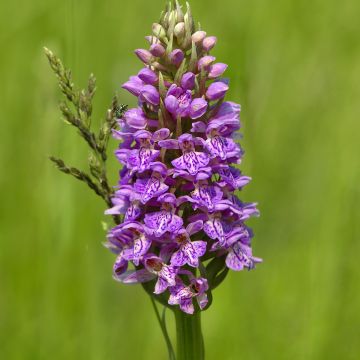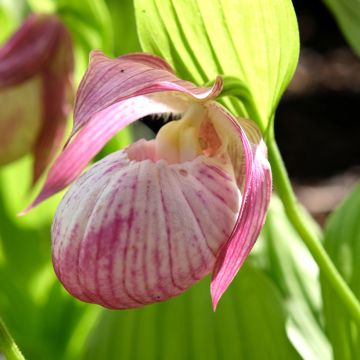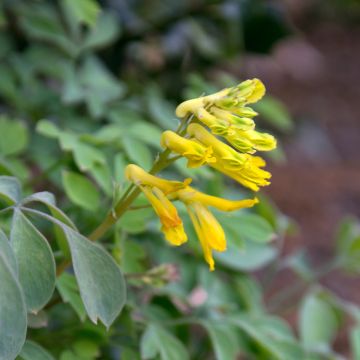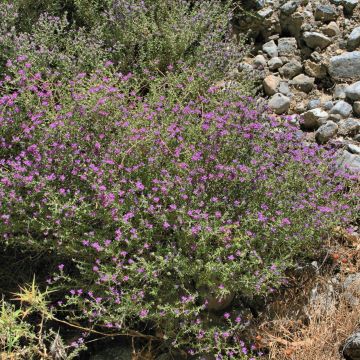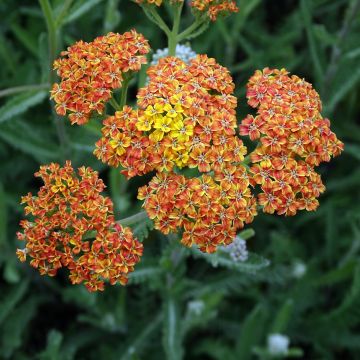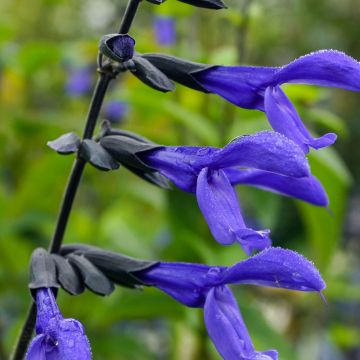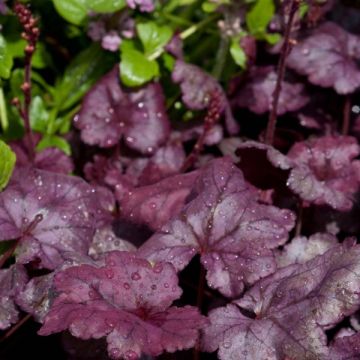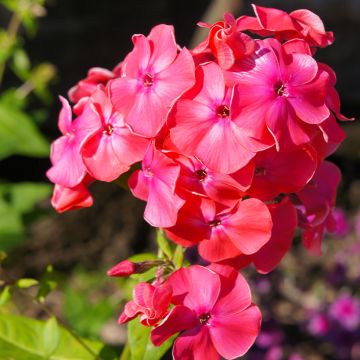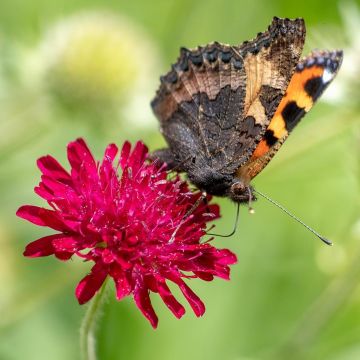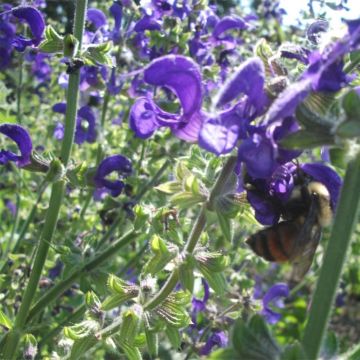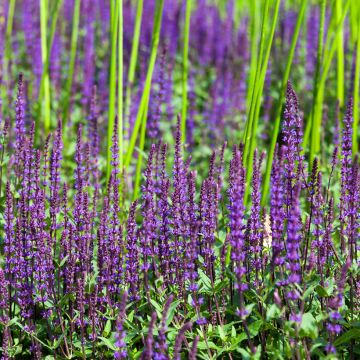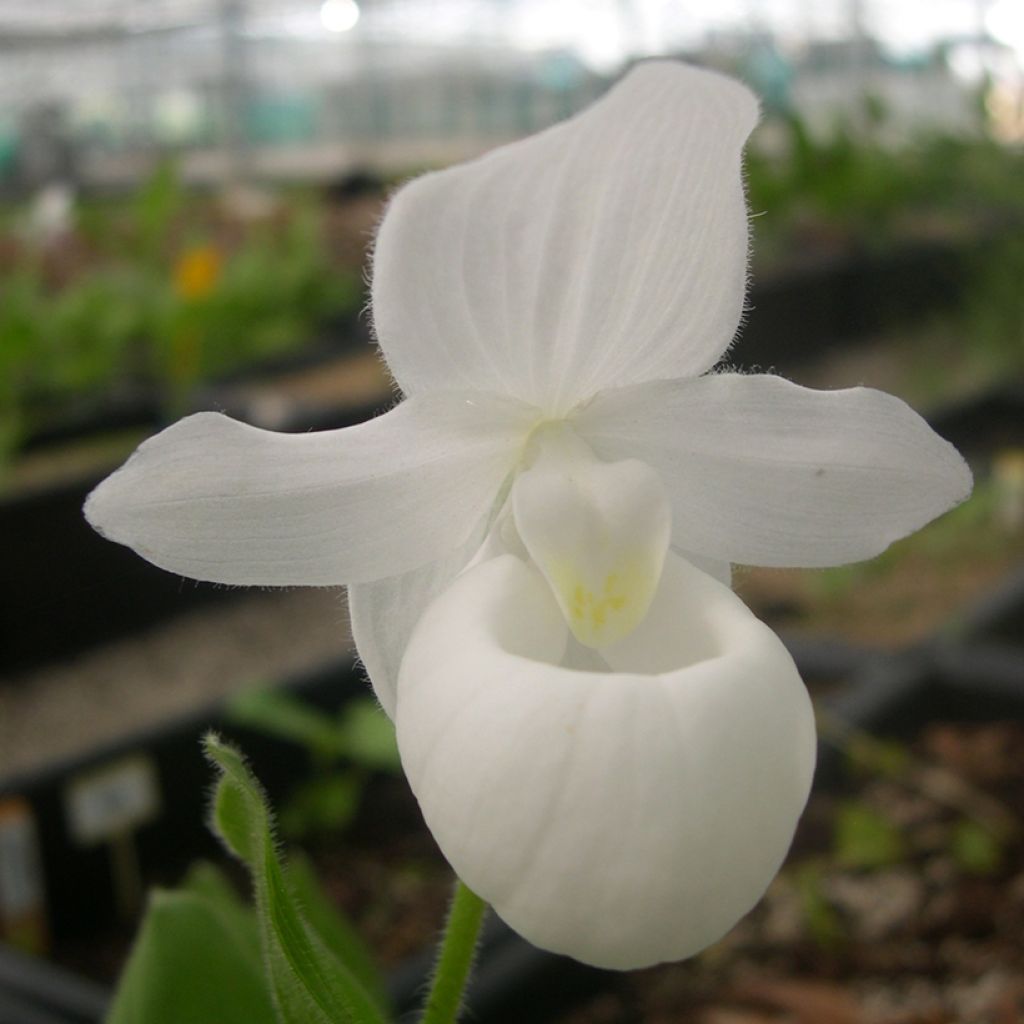

Cypripedium reginae Alba - Lady Slipper Orchid
Cypripedium reginae Alba - Lady Slipper Orchid
Cypripedium reginae Alba
Showy Lady's Slipper, Pink-and-white Lady's-slipper, Queen's Lady's-slipper
Why not try an alternative variety in stock?
View all →This plant carries a 12 months recovery warranty
More information
We guarantee the quality of our plants for a full growing cycle, and will replace at our expense any plant that fails to recover under normal climatic and planting conditions.
From €5.90 for pickup delivery and €6.90 for home delivery
Express home delivery from €8.90.
Does this plant fit my garden?
Set up your Plantfit profile →
Description
Cypripedium reginae 'Alba' is a very beautiful form of the Royal Lady's Slipper Orchid. Its flowers feature sepals and petals of pure white, almost translucent, giving the flower an almost unreal appearance, as if it were floating above the foliage. Where it thrives, this spectacular perennial plant slowly spreads in clumps, producing a few large flowers in early summer. Like many orchids, it thrives when its habitat is meticulously recreated.
The Cypripedium reginae, or Royal Lady's Slipper Orchid, is native to the eastern part of North America. It primarily grows in moist habitats in cool temperate regions. This species prefers bogs, marshes, and lake shores but also adapts well to the dappled shade of deciduous or coniferous forests. A limestone substrate is ideal. Hardy down to -30 °C, this Cypripedium does not tolerate drought or dense shade well. It appreciates cold winters and not overly hot summers.
The Cypripedium is a deciduous herbaceous perennial plant, with its vegetation emerging from the ground quite late in spring (usually in May) and disappearing in winter. It forms a clump of stems with large, bright green ovate to elliptical leaves with prominent parallel veins. In the wild, Cypripedium reginae 'Alba' can reach up to 1 m in height. In our climates, it reaches 50 to 70 cm in height. Flowering usually occurs between late May and early July, although it may be absent in some years and occurs when the plant is at least 4 or 5 years old. The sturdy and robust flower stem grows directly from a large cylindrical rhizome. It is covered with leaves to the top. Each stem produces 1 or 2 flowers, rarely 3 or 4. The flowers, measuring 10 cm in diameter, have the characteristic shape, with white sepals and petals dominating an imposing white "slipper" lip. The entire plant is covered in a fine down that can cause allergies and skin irritation. These urticating hairs host a fungus. During winter, the foliage disappears, and the plant persists as a rhizome.
Cypripedium reginae 'Alba' is demanding when it comes to its habitat, but if the conditions are met, it will be a true attraction for cool areas of the garden and the pride of the gardener who has successfully acclimated it. It thrives in light woodland or woodland edges, near water sources, in partial shade, and in carefully prepared soil. It pairs well with ferns, Trillium, hostas, and Rodgersias.
Our Cypripediums are sold in 11 cm pots to bloom in the first year of planting.
When you receive your orchids, handle them with care: these plants produce few roots and are delicate!
Report an error about the product description
Flowering
Foliage
Plant habit
Botanical data
Cypripedium
reginae
Alba
Orchidaceae
Showy Lady's Slipper, Pink-and-white Lady's-slipper, Queen's Lady's-slipper
North America
Other Garden Orchids
Planting and care
Cypripedium reginae 'Alba' thrives in regions with cold winters and not too hot summers, with regular rainfall. This species prefers cool to damp and neutral to slightly chalky soil. Cypripediums are the most resistant perennial orchids to severe cold, with no fear of temperatures below -30°C or -40°C under snow cover. They thrive in well-drained, aerated soil. You must create a planting pocket if your soil is compact or clayey. For each plant, dig a trough about 40 cm deep, cover the bottom with a drainage layer (lava stone or fine pebbles) and fill it with the following mixture: 50% sand, perlite or lava stone, the other half garden soil mixed with finely ground pine bark, leaf compost or coconut fibre. Cypripedium rhizomes must not dry out in summer and must not be submerged in winter. In the garden, place Cypripedium reginae in a cool, semi-shaded spot. Avoid too much shade or sun at the hottest times of the day.
Planting period
Intended location
Care
This item has not been reviewed yet - be the first to leave a review about it.
Summer flowering perennials
Haven't found what you were looking for?
Hardiness is the lowest winter temperature a plant can endure without suffering serious damage or even dying. However, hardiness is affected by location (a sheltered area, such as a patio), protection (winter cover) and soil type (hardiness is improved by well-drained soil).

Photo Sharing Terms & Conditions
In order to encourage gardeners to interact and share their experiences, Promesse de fleurs offers various media enabling content to be uploaded onto its Site - in particular via the ‘Photo sharing’ module.
The User agrees to refrain from:
- Posting any content that is illegal, prejudicial, insulting, racist, inciteful to hatred, revisionist, contrary to public decency, that infringes on privacy or on the privacy rights of third parties, in particular the publicity rights of persons and goods, intellectual property rights, or the right to privacy.
- Submitting content on behalf of a third party;
- Impersonate the identity of a third party and/or publish any personal information about a third party;
In general, the User undertakes to refrain from any unethical behaviour.
All Content (in particular text, comments, files, images, photos, videos, creative works, etc.), which may be subject to property or intellectual property rights, image or other private rights, shall remain the property of the User, subject to the limited rights granted by the terms of the licence granted by Promesse de fleurs as stated below. Users are at liberty to publish or not to publish such Content on the Site, notably via the ‘Photo Sharing’ facility, and accept that this Content shall be made public and freely accessible, notably on the Internet.
Users further acknowledge, undertake to have ,and guarantee that they hold all necessary rights and permissions to publish such material on the Site, in particular with regard to the legislation in force pertaining to any privacy, property, intellectual property, image, or contractual rights, or rights of any other nature. By publishing such Content on the Site, Users acknowledge accepting full liability as publishers of the Content within the meaning of the law, and grant Promesse de fleurs, free of charge, an inclusive, worldwide licence for the said Content for the entire duration of its publication, including all reproduction, representation, up/downloading, displaying, performing, transmission, and storage rights.
Users also grant permission for their name to be linked to the Content and accept that this link may not always be made available.
By engaging in posting material, Users consent to their Content becoming automatically accessible on the Internet, in particular on other sites and/or blogs and/or web pages of the Promesse de fleurs site, including in particular social pages and the Promesse de fleurs catalogue.
Users may secure the removal of entrusted content free of charge by issuing a simple request via our contact form.
The flowering period indicated on our website applies to countries and regions located in USDA zone 8 (France, the United Kingdom, Ireland, the Netherlands, etc.)
It will vary according to where you live:
- In zones 9 to 10 (Italy, Spain, Greece, etc.), flowering will occur about 2 to 4 weeks earlier.
- In zones 6 to 7 (Germany, Poland, Slovenia, and lower mountainous regions), flowering will be delayed by 2 to 3 weeks.
- In zone 5 (Central Europe, Scandinavia), blooming will be delayed by 3 to 5 weeks.
In temperate climates, pruning of spring-flowering shrubs (forsythia, spireas, etc.) should be done just after flowering.
Pruning of summer-flowering shrubs (Indian Lilac, Perovskia, etc.) can be done in winter or spring.
In cold regions as well as with frost-sensitive plants, avoid pruning too early when severe frosts may still occur.
The planting period indicated on our website applies to countries and regions located in USDA zone 8 (France, United Kingdom, Ireland, Netherlands).
It will vary according to where you live:
- In Mediterranean zones (Marseille, Madrid, Milan, etc.), autumn and winter are the best planting periods.
- In continental zones (Strasbourg, Munich, Vienna, etc.), delay planting by 2 to 3 weeks in spring and bring it forward by 2 to 4 weeks in autumn.
- In mountainous regions (the Alps, Pyrenees, Carpathians, etc.), it is best to plant in late spring (May-June) or late summer (August-September).
The harvesting period indicated on our website applies to countries and regions in USDA zone 8 (France, England, Ireland, the Netherlands).
In colder areas (Scandinavia, Poland, Austria...) fruit and vegetable harvests are likely to be delayed by 3-4 weeks.
In warmer areas (Italy, Spain, Greece, etc.), harvesting will probably take place earlier, depending on weather conditions.
The sowing periods indicated on our website apply to countries and regions within USDA Zone 8 (France, UK, Ireland, Netherlands).
In colder areas (Scandinavia, Poland, Austria...), delay any outdoor sowing by 3-4 weeks, or sow under glass.
In warmer climes (Italy, Spain, Greece, etc.), bring outdoor sowing forward by a few weeks.


































